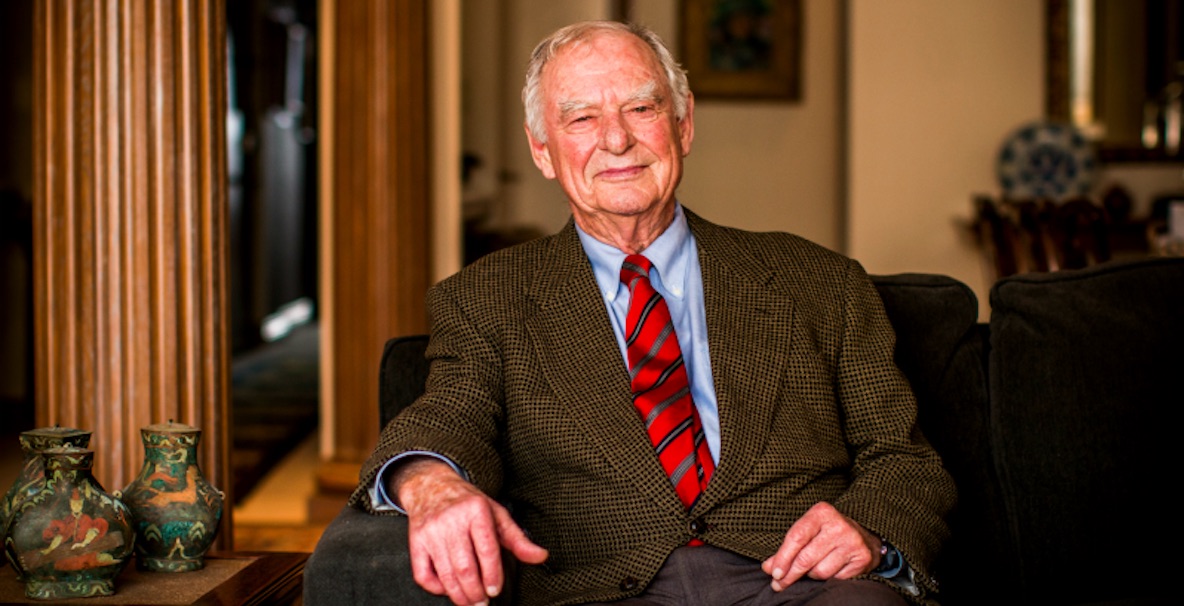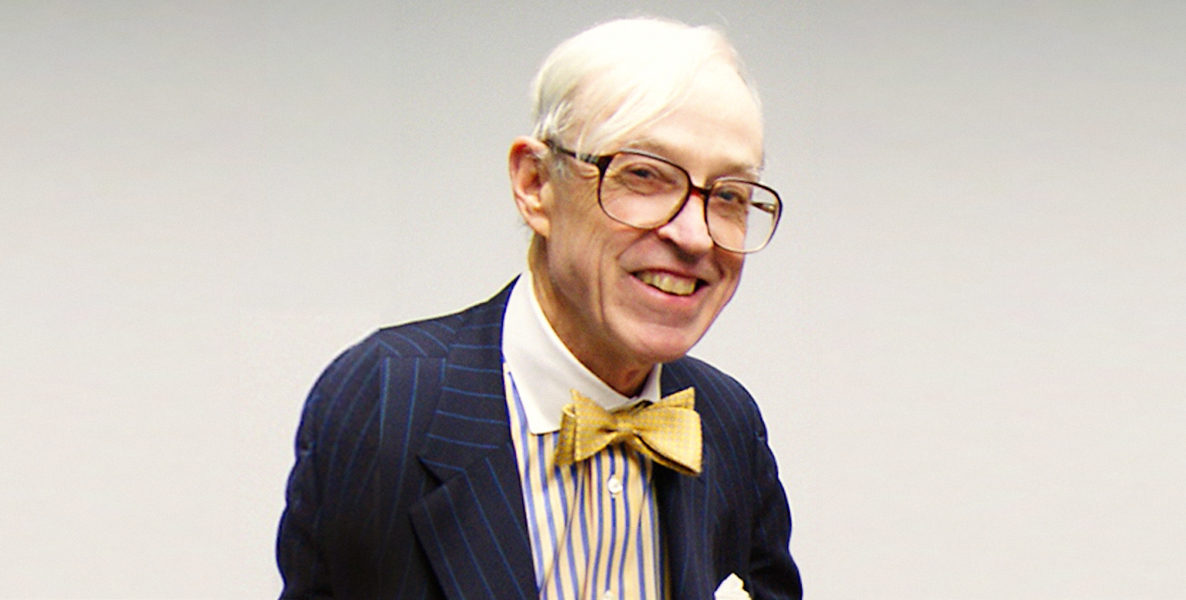When Miriam Spector, an educator, fundraiser, advocate and style-maven, died last week, she left a gaping hole in the civic fabric of Philadelphia. Spector, who was 76 when she passed away, was a longtime board member and supporter of the Free Library of Philadelphia, of several Jewish causes and of urban education. She volunteered her time and her advocacy to support those who most needed it in the city she loved, and she left it a better place than she found it.
She also left an example for all of us who care, and care to be a part of making the world a better place. “While she was certainly a tremendous individual, Grammy lived her life committed to the greater good,” Abbie Spector, Miriam’s granddaughter, said at her funeral. “She was driven to use her intellect and conviction to leave the world better off than when she entered it, and that she did. She led life by example, and now I will lead mine by hers.”
We would all do well to heed those words.
To honor Miriam Spector, we turn to the thoughts of those who knew her public and private life best:
Siobhan Reardon, president and director, Free Library of Philadelphia
Miriam was a force of nature—a beautiful woman who cared deeply about this City, its most unfortunate, its promise and its quirkiness. She cared about the people she met, her friendships, her alliances but most importantly her family. She had an uncanny ability to disarm you when you first met her, to draw you out, and find that common ground where you both could engage.
That happened to me the very first time I met Miriam. I was being interviewed for this position and as I made my way to my assigned seat in the room Miriam came up to me, said hello, introduced herself and looked at me in a way that made me feel that—at that moment—I was the most important person in the world to her. She was charming, warm and welcoming. All I could think of was, Wow, what a lovely person! Our relationship and friendship only grew from there.
She had an uncanny ability to disarm you when you first met her, to draw you out, and find that common ground where you both could engage.
That warmth, that welcoming nature, that ability to invite you in and get you to share a bit about yourself—was pure Miriam. She wanted to get to know you, understand how the two of you could connect in any way, so that the conversations were easier and you were more comfortable. She was smart, fun and worldly and man what a wardrobe! She wore the best jewelry, carried the coolest pocketbooks and wore fabulous shoes.
Miriam was utterly selfless. Her commitment to any number of causes was impressive—whether it was women’s rights, healthcare reform, marriage equality, the environment, gun control or Jewish causes, she was in with both feet. But none was more important to her than the Free Library. And, thank goodness for that.
![]() Miriam worked tirelessly as a Vice-Chairperson of our Board of Directors, Chair of the Pepper Society for years and leading our Institutional Advancement work during a critical rebuilding time for the Library. She was a crucial factor in the success of our Building Inspiration campaign for the Central Library: talking to current donors, encouraging potential donors, trying to lure the unlurable—she was indefatigable. And as positive, upbeat and assuring as Miriam could be, she also worried. She worried about the budget, and she worried about the impact of this work on our staff. It was that care and concern for our staff that made Miriam so important to all of us.
Miriam worked tirelessly as a Vice-Chairperson of our Board of Directors, Chair of the Pepper Society for years and leading our Institutional Advancement work during a critical rebuilding time for the Library. She was a crucial factor in the success of our Building Inspiration campaign for the Central Library: talking to current donors, encouraging potential donors, trying to lure the unlurable—she was indefatigable. And as positive, upbeat and assuring as Miriam could be, she also worried. She worried about the budget, and she worried about the impact of this work on our staff. It was that care and concern for our staff that made Miriam so important to all of us.
She was a mentor to many and a constant well of support and encouragement for the Development staff in particular. She remembered our birthdays, she celebrated with us when we married or became parents, or grandparents for that matter. She was there for us during the difficult times as well.
No organization could have a better cheerleader and connector. We could always count on Miriam (and Arthur) to be there for us—whether it was to celebrate an author or opening a Culinary Literacy Center or new wing of the library or encouraging closer collaborations with the Rosenbach Museum, or the Museum of Art. Miriam and Arthur were a unit.
We loved Miriam, for her sense of joie da vivre, her curiosity, her insistence that we all mattered and that in some way we were all responsible for contributing to each others’ success.
The unit extended to my personal relationship with Miriam and Arthur and became a significant factor in my true affection for them as a couple and with Miriam as a friend. We knew a lot about each other and each other’s families. Jim and I had the pleasure of having dinner with Miriam and Arthur on any number of occasions—but none more delightful than when we had them for over for a holiday. One Christmas Eve (of note) was when Miriam and Arthur had the courage to join us in our daughter’s teeny tiny little hot, hot apartment on the Upper West Side of Manhattan along with an untold number of Reardon/O’Loughlin family members. No problem—they joined right in our little celebration and we loved having them.
We loved Miriam, for her sense of joie da vivre, her curiosity, her insistence that we all mattered and that in some way we were all responsible for contributing to each others’ success.
I wanted to take a moment and share with you a couple of the lovely tributes that have come in about Miriam over that past few days:
“Miriam did so much good and provided a wonderful cheerfulness to our lives.”
“Miriam was a model for me of intelligence, conviction, gumption, and kindness. I loved her.”
“Miriam’s life was a blessing to everyone privileged to know her.”
“Miriam always had a good word or thought to add, a keen sense of humor and we shared our love of vintage jewelry. I will miss her collegiality and friendship.”
“We have lost an incredible contributor. Great woman.” (This is from Wilson Goode)
“I have laughed with and learned much from Miriam. She was such a wonderful, wonderful person.”
“Miriam was such a force for good. Her energy and commitment were inspirational.”
And so, Mrs. Siegal, Arthur, Adam, Jeremy and the whole family, we are with you, we are here to support you as you continue your life journey without Miriam’s physical presence. We do so with the commitment to uphold what was important to Miriam: Family first, care about children and their education and ability to read and to truly enjoy those you are with. We owe that to her and all she gave to and shared with us.
Abbie Spector, Miriam’s granddaughter
All of you knew Miriam in some capacity, but only four of us have had the privilege to call her Grammy. As her only granddaughter, I can safely say that Grammy was a force to be reckoned with, a woman far ahead of her time who managed to balance unwavering devotion to her family with an impressive career and meaningful advocacy work. Grammy was my role model who approached each day with uncompromising values and an unmatched zeal for life. She led life by example, and now I will lead mine by hers.
Grammy instilled core values in every relationship she had. She fostered compassion, curiosity, love, and tenacity, all backed by family and cultural traditions. In some ways, Grammy herself was traditional. She religiously enforced kashrut in her home, insisted on second day Rosh Hashanah, and banned her own children from using nicknames—which inspired my brothers and me to call her Hampster exclusively for years on end. Her vocabulary was traditional but sophisticated—peppered with SAT words and Yiddish words we’d maybe heard but never actually understood. Not to worry, though, Grammy was a human dictionary, never pausing—not even, much to our embarrassment, when we asked her for the definition of schtup.
She was always willing to consider different perspectives, but held fierce and well-founded opinions. I was always eager to hear her takes and regarded her as a moral compass.
But while Grammy was grounded in tradition, she was certainly not bound to it, and adapted ancient customs to make them more relatable to contemporary ideas and issues. You could always count on some new item adorning our Seder plate, accompanied by a stack of progressive articles about current-day oppression that linked to the Haggadah. You couldn’t hide at her Seder—she’d assign paragraphs popcorn style and would ask pointed questions that demanded thoughtful answers when we were least expecting it. Last Passover she plopped an article about the injustices of US immigration policies next to my brother’s soup, asking “How would you compare and contrast the refugee crisis at our own border to the Jews’ Exodus from Egypt?” He was let off the hook only when she snuck up on me to announce I’d be reading the four Seder questions in Portuguese.
Despite all of her questioning, she never expected a specific response, but instead encouraged us to form our own opinions, and was genuinely excited when our perspectives differed and sparked thoughtful dialogue. She was extremely present in each conversation and spoke to our 13-year-old cousin Jack the same way she conversed with my father and her own mother, armed with an uncanny ability to provoke critical thinking in any setting. She was always willing to consider different perspectives, but held fierce and well-founded opinions. I was always eager to hear her takes and regarded her as a moral compass, and the only one able to help me win political battles against my dad with unbeatable intellect and ethical arguments so strong they’d silence everyone at the table.
These conversations spanned other holidays too, including Rosh Hashanah, where we observed similarly unconventional customs in true Grammy style. My favorite part of our Rosh Hashanah family tradition was Grammy’s strict rule requiring us to eat a fruit we’d never tasted before to symbolize new beginnings. The task of discovering new fruits has become increasingly difficult over the years—after all, we’ve already seen starfruit, mangosteen, and rambutan—but the challenge never stopped Grammy. Her endless excitement and sense of adventure rubbed off on all of us, and I know that I too will find a new fruit on Rosh Hashanah for the rest of my life, no matter what it takes.
Grammy’s curiosity about the world extended far beyond the tradition of discovering new exotic fruits. My first summer at overnight camp when I was 10-years-old, Grammy bombarded me with news articles and cultural reviews. At visiting day, my mom found some unopened letters stacked up under my bed and gently reminded Grammy that I was busy making friends and swimming in the lake and maybe not quite as interested in reading a review about the best opera of 2005. She tried hard to listen, as evidenced by something I found in my room last night. It was an article I received my second summer of camp with a yellow sticky note that read: “Abs- I will try to be discriminating this summer with articles—but this is a classic!” Unsurprising to me, my grandmother’s definition of discriminating and classic included an article about a drag queen sporting a leotard made from hair curlers!
More recently, it’s been even harder to escape her constant findings and musings due to the abundance of online articles. She was a prolific emailer, and most recently sent me a link to a video showcasing the world’s largest egg—I’m not entirely sure why, but it made me smile at her unusual ability to see the beauty and magic in everything.

Grammy’s collection of knowledge spanned far beyond eggs and other odd Atlas Obscura articles, and she always had meaningful thoughts to add to anything I told her. I was in college one semester when she asked me what I was learning in my classes. I mentioned that I had just come from the library where I was analyzing historic postcards from the Dreyfus Affair. I didn’t think much of the conversation until a few days later, a package arrived on my doorstep from Grammy, containing a coffeetable book titled Hatemail: Anti-Semitism on Picture Postcards.
Soon after, she called to announce that she’d made an appointment for us to view a collection of Dreyfus-era postcards together at the University of Pennsylvania’s Special Collections Library. Once again, she’d brought life to my studies with great joy and passion, revealing her contagious sense of curiosity that made all of us engage more deeply in whatever we were doing.
Grammy was able to help us forge our own paths because she was so secure in her own, proud to stand out from the crowd in everything she did. “Grammy outfits” were marked by funky clothes and chunky jewelry, and travel stories that animated each item. I am wearing her bracelet now, as a reminder of her spunk and individuality, and with recognition that she’d think my outfit was too dull without it.
Her style was pronounced in the kitchen too, where she prepared creative and unusual meals that were so authentically her. After our first bite, she’d pretend we were in a culinary class of equals, making us each guess the ingredients in her latest creation. While it wasn’t always easy to determine the flavors in something like last month’s watermelon-cucumber-ginger gazpacho, we knew safe guesses were garlic, ginger, balsamic, or black pepper, key ingredients in most of her dishes, even ice cream.
Grammy’s love of life reached far behind her sense of style. My happy childhood memories begin at her house on Golf House Road—jumping in piles of leaves, brainstorming homophones, chomping on carrots so loud the neighbors could hear (or so she said), and floating in her pool with swimmies, only vaguely aware that she couldn’t really swim herself.
Last Passover she plopped an article about the injustices of US immigration policies next to my brother’s soup, asking “How would you compare and contrast the refugee crisis at our own border to the Jews’ Exodus from Egypt?” He was let off the hook only when she snuck up on me to announce I’d be reading the four Seder questions in Portuguese.
Later memories of her are marked by our travels together, most famously a post-Bat Mitzvah trip to Italy. Our days were full of sightseeing and eating, and while I was so impressed by Grammy’s banter with our tour guide about archaeological history, I was perhaps even more taken by her willingness to stand up to my grandfather and proclaim that under no circumstances would we be eating Chinese food in Florence! I’ll never forget the magic of that trip—and neither will my parents, forever scarred from the photos they received of their 13-year-old daughter sipping wine and riding through Rome on the back of an attractive young man’s motorcycle.
While she was certainly a tremendous individual, Grammy lived her life committed to the greater good. She was an educator, but was also an agent of change. From her first job out of college as a public school teacher at an under-resourced school in Philadelphia, to her most recent volunteer positions at countless organizations, she was driven to use her intellect and conviction to leave the world better off than when she entered it, and that she did.
It’s unfair and confusing and tragic that Grammy can’t be here, with her snazzy clip-on earrings and craft-show purses, but she will live on forever in all of us. Just as her parents did before her, Grammy nourished our family with unshakeable values rooted in tradition and modernized for our world. It’s possible none of us will be here the next time rambutan is served at Rosh Hashanah, but we can rest assured that the traditions she left us with will never die.
And while I may not be able to pull off this bracelet with as much flair as Grammy, I will live with her intention, rooted in the foundational values she taught me and spread so lovingly in everything she did. Now it is time to honor these pieces of her and promise to be living memories, and I know she’ll beam down at us with pride, just as she’s always done.
Photo courtesy Arthur Spector





